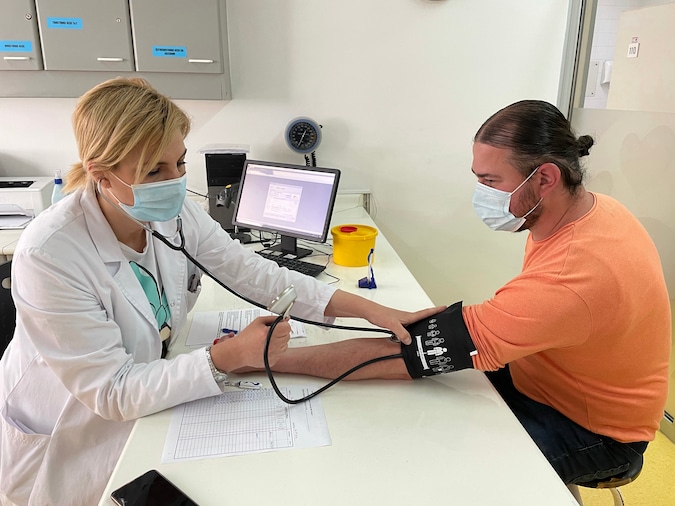
Routine Checkups and Screenings for Every Age

Routine checkups and screenings are crucial for maintaining good health and catching potential health issues early. They are lifesavers and money-savers, offering early detection and preventive care. At SelfGood , we emphasize the value of proactive healthcare for all age groups.
Routine health checkups and screenings are essential tools for safeguarding your health. These preventive measures detect illnesses early, prevent severe complications, and promote a proactive approach to well-being. This comprehensive guide provides essential recommendations for every life stage and highlights the importance of routine health monitoring.
Key Takeaways:
- Screenings detect health issues early, increasing treatment success rates.
- Preventive healthcare reduces the risk of severe complications and saves money.
- This guide provides a complete age-specific screening recommendation list.
What Are Routine Checkups and Screenings?

Routine checkups and screenings consist of regular medical tests designed to monitor overall health and identify issues before symptoms develop. Common examples include blood pressure monitoring and cholesterol testing.
These checkups form a preventive healthcare approach, encompassing various exams tailored to each person’s needs. Blood pressure checks can prevent strokes, while cancer screenings, such as mammograms, detect disease in its most treatable stages. Overall, these assessments are critical for maintaining long-term health and well-being.
Why Are Routine Checkups Important for All Ages?
The benefits of routine health monitoring extend to all age groups:
- Early Detection and Treatment: Screenings can reveal issues early, leading to better outcomes. For instance, catching high cholesterol can prevent heart attacks.
- Prevention of Severe Illnesses: Vaccinations and regular health evaluations help ward off disease. Monitoring blood sugar can prevent diabetes complications.
- Cost Efficiency: Preventive care reduces long-term healthcare costs by avoiding expensive treatments for advanced conditions.
- Lifelong Health Habits: Establishing a habit of regular checkups leads to ongoing health awareness.
Routine checkups are a cornerstone of a healthy lifestyle. They reduce risks and promote overall well-being by enabling early intervention.
Recommended Screenings for Infants and Children
Newborn ScreeningsNewborns undergo critical tests for metabolic disorders, hearing issues, and congenital heart defects. Early detection of these conditions can prevent life-altering consequences.
Pediatric CheckupsChildren should visit a pediatrician regularly to track growth and development. Vaccines are essential for protecting against diseases like MMR and whooping cough. Pediatricians also evaluate milestones, ensuring children are developing healthily.
Vision and Dental CheckupsEye exams can detect early vision problems, while dental visits from age one promote lifelong oral health. Preventive care minimizes future issues, making vision and dental exams vital for growing children.
Essential Screenings for Teenagers
Physical ExaminationsTeens require annual physicals, particularly if they play sports. These checkups assess general health, monitor growth, and ensure physical fitness.
Mental Health ScreeningsTeenagers face stress, anxiety, and other mental health challenges. Screenings for depression and substance abuse can identify issues early, enabling support and intervention.
Sexual Health ScreeningsSexually active teens need STI tests and the HPV vaccine. Encouraging safe sexual practices and awareness is key to a healthy adolescence.
Recommended Screenings for Adults
In Your 20s and 30sAdults in their 20s and 30s should prioritize annual wellness exams. Screenings for cholesterol, blood pressure, and skin cancer are vital. Women should have regular Pap smears. Establishing healthy habits and managing stress during this stage sets the foundation for a healthy future.
In Your 40sPreventive care becomes more crucial. Women should begin mammograms, while men should consider prostate screenings. Regular diabetes tests are also necessary as risk factors increase.
In Your 50s and BeyondAdults over 50 should have colonoscopies to detect colon cancer. Bone density tests help prevent fractures by diagnosing osteoporosis early. Annual vision and hearing exams become increasingly important. Vaccinations, like the shingles and flu shots, are recommended to prevent illness.
Screenings for Seniors
Routine CheckupsAnnual physical exams for seniors should include a detailed medication review. Managing drug interactions and side effects is vital for this age group.
Cognitive Health ScreeningsEvaluations for dementia and Alzheimer’s help detect cognitive decline early, opening the door to treatment and support options.
Fall Risk AssessmentsBalance and mobility tests are crucial to prevent falls. Fall-related injuries are common in seniors and can lead to severe health issues.
Preventive ScreeningsStaying current with vaccinations like flu and pneumonia shots is essential to protect older adults from infections.
Specialized Screenings Based on Risk Factors

Family HistoryA family history of conditions like cancer or heart disease may necessitate genetic testing or more frequent screenings. Discussing your family health history with your doctor is crucial for personalized care.
Lifestyle FactorsSmokers or those with unhealthy diets should have regular cancer screenings. Lifestyle choices directly impact screening needs, and health counseling can guide risk reduction efforts.
Pre-existing ConditionsIf you have a chronic condition, such as diabetes or hypertension, regular monitoring is necessary to prevent complications. Tailored healthcare plans can manage symptoms effectively.
How to Prepare for Routine Checkups and Screenings
Preparation can make appointments more productive. Keep a list of current medications, document symptoms, and write down any questions for your doctor. Having a comprehensive health record ensures your doctor can provide the best care possible.
The Role of Technology in Routine Screenings
Healthcare technology has advanced rapidly. Telemedicine provides convenient virtual consultations, while wearable devices monitor heart rates and other health metrics. Apps can remind you of appointments and manage your health records, keeping preventive care top of mind.
Final Thoughts
Routine checkups and screenings are key to a healthier, longer life. They enable early detection, help manage chronic conditions, and offer peace of mind. By staying proactive and prioritizing preventive care, you can protect your health and avoid costly complications.
Frequently Asked Questions
How often should I have routine checkups?
The frequency varies, but adults generally need annual checkups. Consult your doctor to determine the right schedule based on your risk factors and health status.
What happens if I skip a screening?
Skipping screenings can delay the diagnosis of treatable conditions, reducing the chances of successful treatment and potentially worsening outcomes.
Are routine checkups covered by insurance?
Yes, most insurance plans cover preventive services, such as checkups and vaccinations, as required by the Affordable Care Act.




